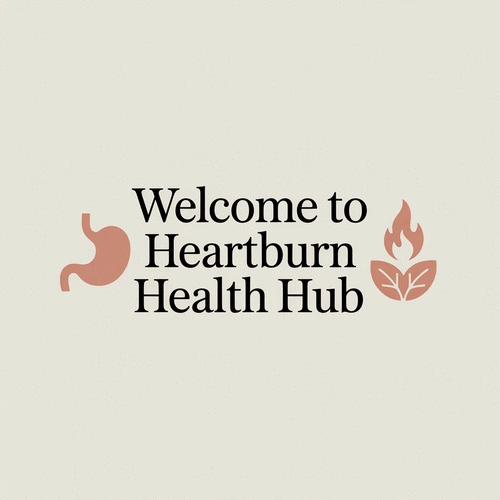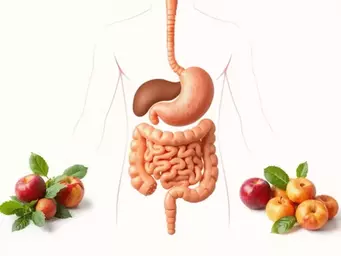Are you tired of the burning sensation that strikes after a meal? Understanding heartburn and its triggers can be the key to reclaiming your comfort. As you dive into the world of digestive health, you'll find that identifying the causes is the first step toward effective management.
What You Will Learn
- Heartburn occurs when stomach acid flows back into the esophagus, often triggered by food choices and lifestyle habits.
- The lower esophageal sphincter (LES) plays a crucial role in preventing acid reflux; a weak LES can lead to increased heartburn symptoms.
- Top heartburn triggers include spicy foods, fatty foods, citrus fruits, chocolate, and large meals.
- Keeping a food diary can help identify personal triggers and patterns related to heartburn symptoms.
- Implementing strategies such as eating smaller portions and practicing stress relief can significantly reduce heartburn occurrences.
Common Heartburn Triggers and Management Strategies
Understanding what activates heartburn can empower you to make informed decisions about your diet and lifestyle. Below is a summary of common triggers and actionable strategies for management.
Top 10 Heartburn Triggers
- 1 Spicy Foods
- 2 Fatty Foods
- 3 Citrus Fruits
- 4 Chocolate
- 5 Onions & Garlic
- 6 Carbonated Drinks
- 7 Alcohol
- 8 Peppermint
- 9 Caffeine
- 10 Large Meals
Key Management Strategies
- ✓ Keep a Food Diary
- ✓ Eat Smaller Portions
- ✓ Choose Alternatives
- ✓ Practice Stress Relief
- ✓ Mind Your Timing
- ✓ Consult a Professional
- ✓ Join the Community
Understanding Heartburn and Its Common Triggers
Heartburn can feel like a fiery challenge in your chest, often catching you off guard after a meal or even while you're just relaxing. It’s important to understand that heartburn, scientifically known as gastroesophageal reflux, occurs when stomach acid flows back into the esophagus. This can happen for several reasons, and I’m here to help you uncover them!
The sensation is more than discomfort; it’s your body sending a signal that something is off. Many people experience this sensation regularly, and it can be linked to what we eat, how we eat, and even our daily habits. By understanding these aspects, we can take the first steps towards managing heartburn effectively.

What is Heartburn and Why Does It Happen?
So, what exactly causes heartburn? It’s primarily due to the backflow of stomach acid into your esophagus, leading to that burning sensation. This can occur after consuming certain foods, overeating, or even lying down too soon after a meal. Your body's digestive system is complex, and understanding the triggers is key to prevention!
Heartburn can also be exacerbated by lifestyle factors, such as stress and certain medications. I suggest keeping a diary of when you experience heartburn to identify patterns and potential triggers. Remember, knowledge is power when it comes to managing your digestive health!
The Role of the Lower Esophageal Sphincter in Heartburn
The lower esophageal sphincter (LES) is a crucial player in the heartburn game. This muscle acts as a barrier that keeps stomach acids where they belong—in your stomach. When the LES becomes weak or relaxed, it can lead to acid reflux, and that’s when heartburn strikes. For a deeper understanding of the mechanisms behind this, you can refer to insights on the physiology of the esophagus and LES function.
- Weakness in the LES: Can allow stomach acids to flow back up.
- Foods and drinks: Certain items can relax the LES, increasing heartburn risk.
- Timing of meals: Eating large meals or lying down immediately after can stress the LES.
By being mindful of these factors, you can help support the health of your LES and potentially reduce your heartburn symptoms. Remember, understanding your body and its signals is the first step toward relief!
Identifying the Top 10 Common Heartburn Triggers
Now that we’ve covered the basics of heartburn, let’s dive into identifying the top 10 common triggers. Being aware of these can empower you to make informed choices that help minimize your symptoms and improve your overall digestive health. Many of these triggers are well-documented as contributing factors to acid reflux and GERD.
- 1. Spicy Foods
- 2. Fatty Foods
- 3. Citrus Fruits
- 4. Chocolate
- 5. Onions and Garlic
- 6. Carbonated Drinks
- 7. Alcohol
- 8. Peppermint
- 9. Caffeine
- 10. Large Meals
By recognizing these triggers, you can take proactive steps to avoid them. This knowledge is essential as you work towards alleviating discomfort and enhancing your quality of life. Stay tuned as we explore each trigger in detail!
We Want to Hear From You!
Have you identified your personal heartburn triggers? Share your experiences with us:
Frequently Asked Questions About Heartburn
Summarizing Heartburn Triggers and Management Strategies
As we wrap up our discussion on heartburn, it’s essential to reflect on the main triggers and the effective strategies for managing them. Understanding what activates heartburn can empower you to make informed decisions about your diet and lifestyle. At Heartburn Health Hub, my goal is to help you recognize these triggers and find ways to alleviate discomfort.
To summarize, here are some of the most common heartburn triggers you should be aware of:
- Spicy Foods: These can cause your stomach to produce more acid.
- Fatty Foods: High-fat meals can slow digestion and increase acid production.
- Citrus Fruits: Their acidity can lead to heartburn symptoms.
- Chocolate: Contains compounds that can relax the lower esophageal sphincter.
- Onions and Garlic: Common culprits for many heartburn sufferers.
- Carbonated Drinks: The gas can cause bloating and discomfort.
- Alcohol: Can irritate the stomach lining and relax the sphincter.
- Peppermint: While soothing, it can also trigger heartburn in some.
- Caffeine: Found in coffee and tea, it can increase acid production.
- Large Meals: Overeating can put pressure on your stomach, leading to reflux.

Key Takeaways on Avoiding Heartburn Triggers
Now that we’ve highlighted the common triggers, let’s explore some actionable strategies to help you manage your heartburn effectively. Implementing these practices can make a significant difference:
- Keep a Food Diary: Track what you eat and how it affects your symptoms.
- Eat Smaller Portions: This can prevent your stomach from becoming too full.
- Choose Alternatives: Swap out trigger foods for gentler options.
- Practice Stress Relief: Incorporate techniques like yoga or meditation into your routine.
- Mind Your Timing: Avoid eating close to bedtime to minimize nighttime symptoms.
By actively implementing these strategies, you can take control of your heartburn and improve your overall digestive health. Remember, the journey to understanding heartburn is ongoing, and I’m here to support you every step of the way!
Encouraging Proactive Heartburn Management
When to Seek Professional Help for Heartburn Symptoms
While many people can manage their heartburn with lifestyle adjustments, there are times when it’s essential to seek professional help. If your symptoms are persistent, severe, or interfering with your daily life, it's crucial to consult a healthcare professional. They can provide guidance tailored to your specific needs and rule out any underlying conditions.
Join the Community: Share Your Experiences and Tips
Finally, I invite you to connect with others who are navigating similar challenges. Sharing your experiences can provide valuable insights and support. At Heartburn Health Hub, we believe in building a community where we can learn from each other. Feel free to leave comments, share your tips, or ask questions. Let’s work together toward a heartburn-free life!
Recap of Key Points
Here is a quick recap of the important points discussed in the article:
- Understanding Heartburn: Heartburn, or gastroesophageal reflux, occurs when stomach acid flows back into the esophagus, causing discomfort.
- Common Triggers: Top triggers include spicy foods, fatty foods, citrus fruits, chocolate, and large meals.
- Lower Esophageal Sphincter (LES): A weak or relaxed LES can lead to heartburn; be mindful of foods and habits that affect its function.
- Management Strategies: Keeping a food diary, eating smaller portions, and practicing stress relief can help manage symptoms effectively.
- When to Seek Help: If heartburn symptoms are persistent or severe, consult a healthcare professional for tailored guidance.










